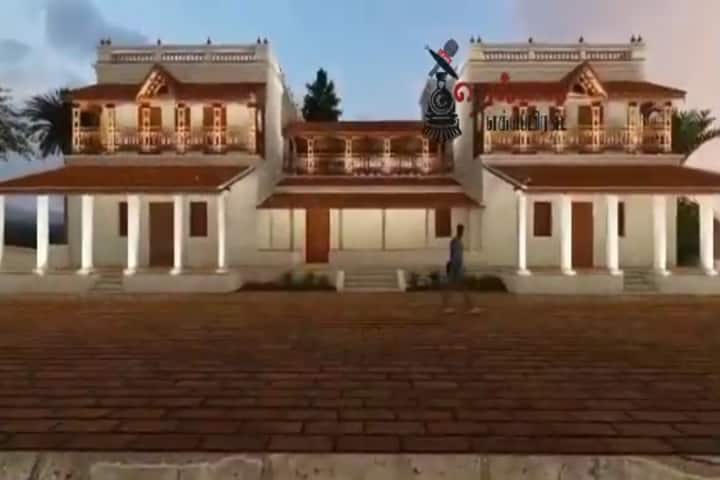With a spate of archaeological excavations being carried out in Tamil Nadu yielding vital artefacts, the State Government has decided to construct Porunai Museum in Tirunelveli district.
Chief Minister M.K. Stalin laid the foundation stone for this Rs.33.02 crore project on Thursday. In fact, CM had announced in the Assembly in 2021 about this museum which would store and exhibit artefacts collected at several places. These include those found at Adichanallur and Pandya kingdom’s port town of Korkai and Sivakalai.
The total area allocated for the institution is 10 acres of which 54,296 square feet will be used for constructing the museum. It will house, apart from the administrative block, three separate sections and these will showcase the objects found at Adichanallur, Korkai and Sivakalai.
The museum has been designed to reflect the local architectural style and will have a verandah, stone and wooden pillars and courtyards. There will be a workshop that will be dedicated to the handicrafts of the region thereby enabling visitors to know about them. Further, the products that these artisans will be creating right in front of them will be available for sale too.
The Sample Pictures of the proposed ‘Porunai Museum’ in #Tirunelveli #nellai@nellaiupdates @OfTirunelveli @Porunaicity @tirunelvelianz pic.twitter.com/Kc9K3ubL8s
— Nellai Seemaiyil (@seemaiyil) May 18, 2023
Providing a complete local touch, the green areas of the museum will have native trees and plants — both ornamental and herbal.
Exploration at Korkai has shown that it was a harbour during the rule of the Pandiyan kings in 8th Century. Among the objects found there are glass and conch bangles, stone, glass and terracotta beads, brass utensils, silver and copper coins, and terracotta pipes.
Archaeologists in Sivakalai have discovered burial urns, offering bowls, iron materials, marked pots and several other artefacts. At Adichanallur besides burial urns, earthenware was found.
Large quantities of ornaments – gold and tin-mixed bronze – reflect the life style of people
Further, the carbon dating of the rice found in one of the burial urns in Sivakalai hillock revealed that it is from 1155 BC making the Tamirabharani civilisation 3,200 years old.
The museum project as per plans is expected to be completed in November 2024.
Also read: PM Modi stresses on preserving history but sees need to remove distortions to foster New India




















